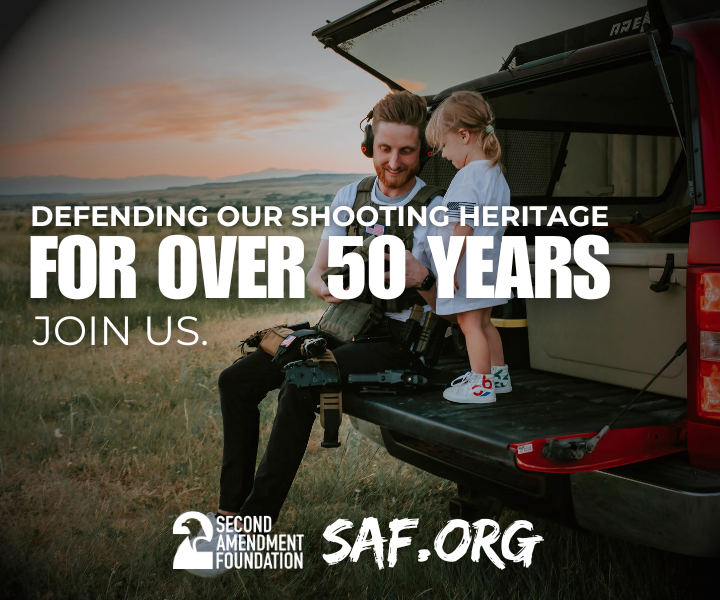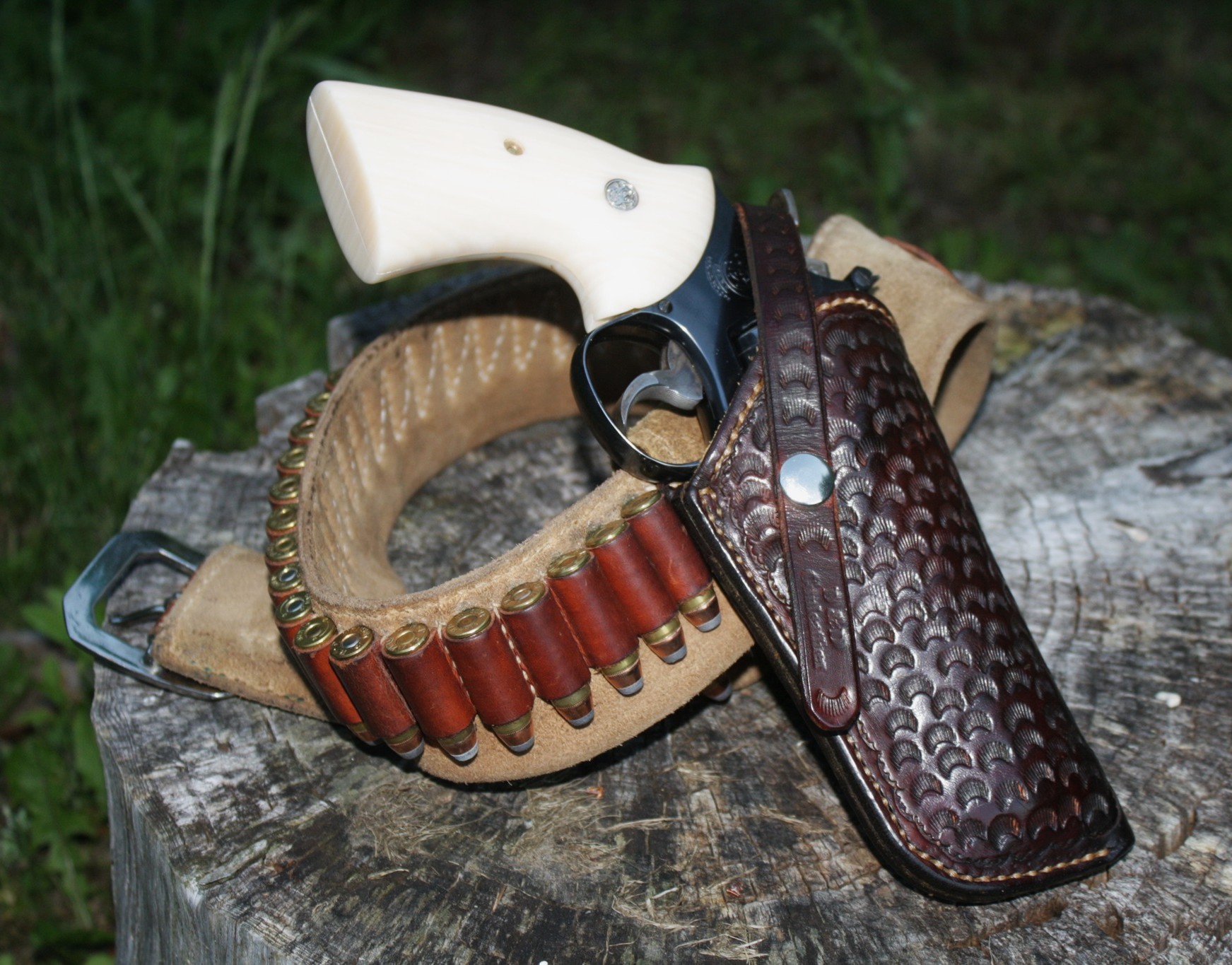
By Dave Workman
Editor-in-Chief
I was recently asked on social media about why I was carrying a revolver in a bird hunting photograph, and the answer seemed simple enough.
Where I hunt upland birds in the mountains of Washington state—the Central Cascades to be precise—one just *might* have the occasion to encounter something with teeth and claws, and a bad disposition.
This should always be considered a remote possibility, since animal attacks on humans are still fairly rare, but it only needs to happen once to become a life-changing experience for the victim. In my years of tramping the wilds—what I call the “High Lonesome” because much of my time in the outdoors has been spent alone—I have seen black bears, a few bobcats, a glimpse or two of mountain lions close enough to instantly identify them, and two wolves stalking after a cow elk on the opening morning of Washington’s elk season back in 2003 or ’04, if I recall correctly.
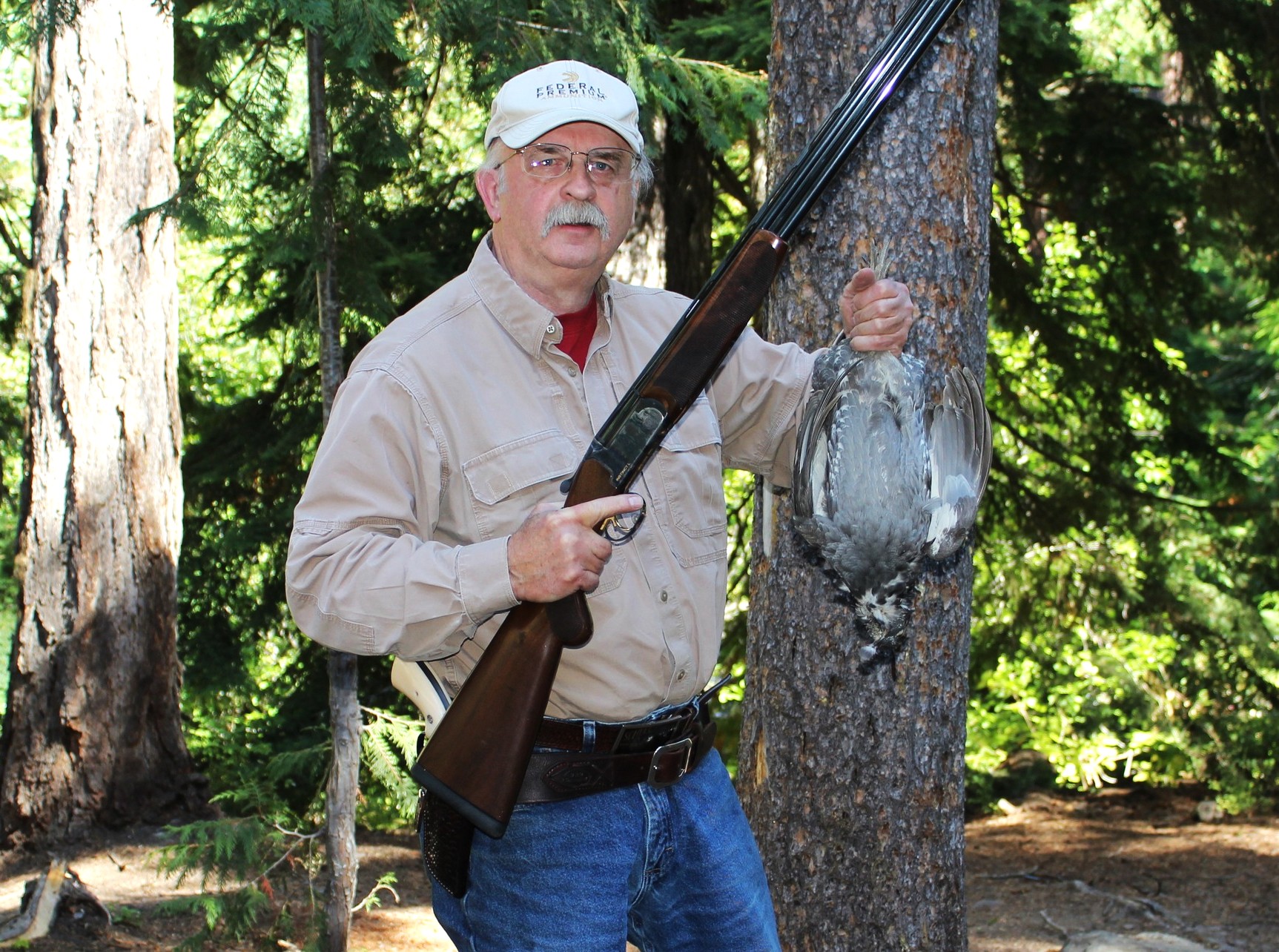
Not far from where I live, about seven years ago a mountain lion attacked two cyclists on a gravel road, killing one and injuring the other. Wildlife agents tracked down the cat and killed it.
About three years ago, not far from the gun range where I do lots of shooting, another mountain lion attacked a woman riding bicycles with several other women. She was injured and her companions actually held down the offending cougar with a mountain bike until a wildlife agent could respond (it took awhile) and shoot the animal.
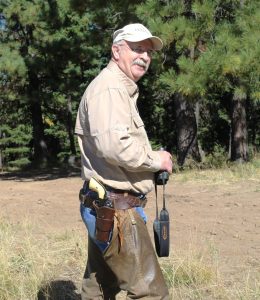
Granted, I might be a little slow on the uptake at my age, but not that much! I’d have to say the 40 ounces of “prevention” riding on my hip is worth a whole half ton of “cure,” if you get my drift.
The revolver is a constant companion when I’m off the pavement, and having grown up in the Northwest, where the nearest help might not be coming at all in an emergency, I have slept soundly on many occasions with a “round gun” close at hand.
Why a revolver rather than a semi-auto?
Here’s a question I have often been asked, and the answer is invariably the same: A semi-auto is a two-piece handgun, and if something goes wrong with, or you lose, the magazine, you’re left with a clumsy single-shot pistol that can be a pain in the neck to reload. But with a revolver, all one needs is loose ammunition to make it function.
I recall the late Gen. George S. Patton having written something similar, which I read in a magazine many years ago. He carried a Colt Single Action Army, sometimes in tandem with a Smith & Wesson Registered Magnum, during WWII, presumably for that very reason.
My hardware has changed back and forth over the years, to include double-action revolvers from Colt and S&W in .357 Magnum or .41 Magnum, to single-action Rugers, either in .41 Magnum or .45 Colt. All of these rounds are formidable fight stoppers—after all, even violent crime can happen in the outdoors, and the police could be hours away—and having killed three deer over the years with two different handguns, I can attest to the knockdown power of a magnum handgun.
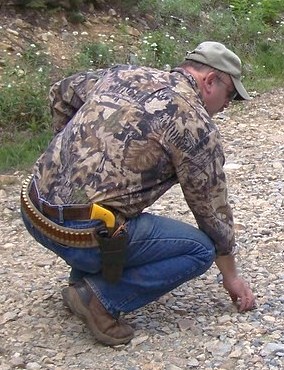
In the back country, I generally load up with jacketed hollowpoints, except in .45 Colt, where I prefer a 255-grain lead bullet from Hornady. I use handloads in the outdoors, worked up to perform in my sixguns, using different propellants for speed and accuracy. Over the years, I’ve gotten good results with Hodgdon’s H110, Hercules 2400 and then Alliant 2400 after the company changed ownership, and lately with Accurate #9. Other handloaders swear by Unique, W296 and assorted other propellants, but for my purposes the three powders I’ve identified have performed consistently in my magnums. For the .45 Colt, I’ve been using either HP-38 or CFE Pistol, both from Hodgdon.
I’ve taken small game with handguns when there was neither a rifle or shotgun handy, and until the past few years, they were all revolvers. Over the past few years, I’ve taken grouse with a Ruger semi-auto, which has turned out to be a remarkably accurate pistol with a 5-inch bull barrel, and it rides with me during the hunting season, where I might encounter a bird or bunny for the stew pot.
What’s the best wheelgun for the outdoors?
That’s an impossible question to answer, because everyone will have his or her own preference. In .41 Magnum, I’ve carried both Ruger Blackhawk single-actions and S&W Model 57 N-frame double-actions, with no complaints. I have found both to be strong, reliable and accurate platforms, and I typically pack handguns with shorter barrels; a Blackhawk with a 4 5/8-inch barrel or a Model 57 with a 4-inch barrel.
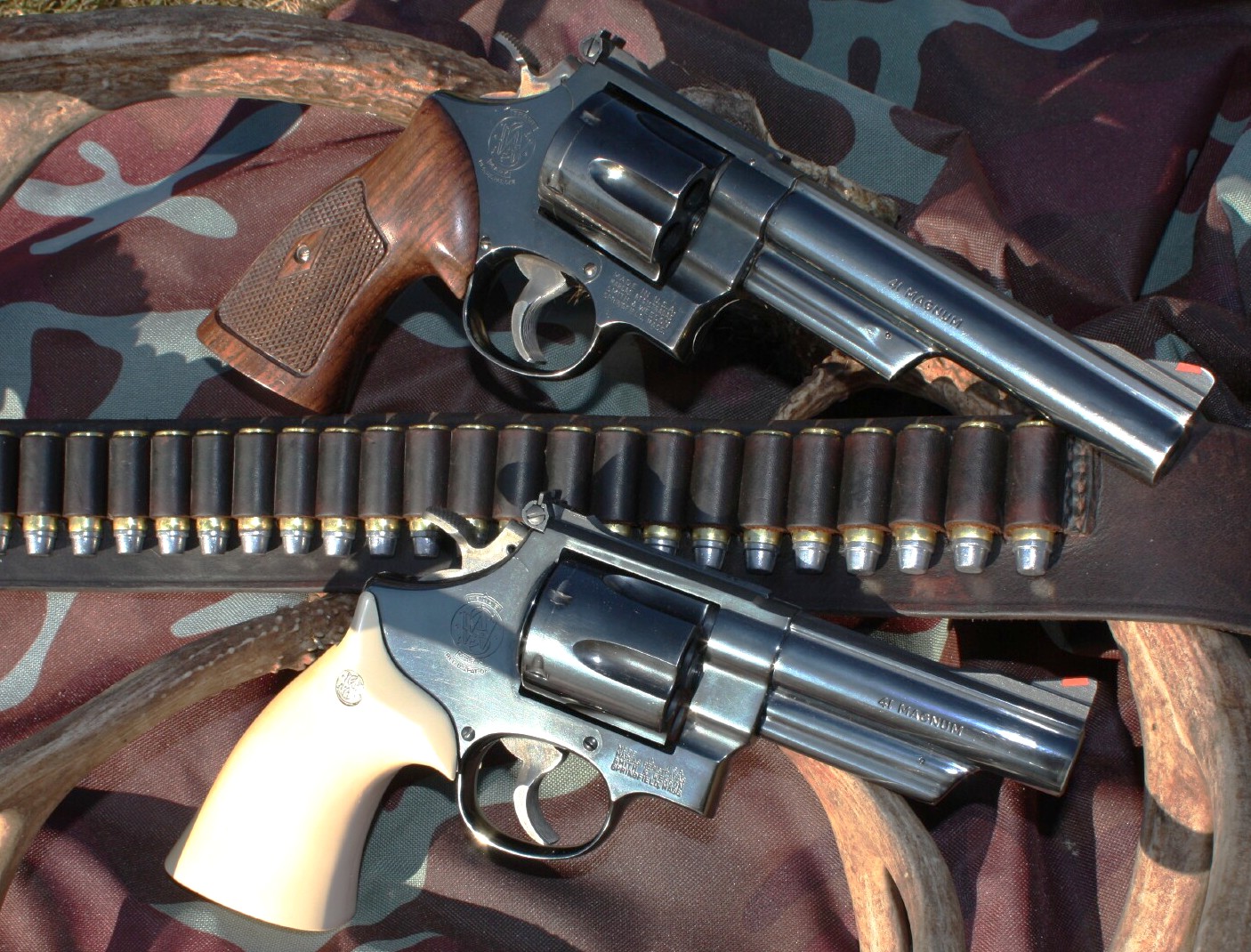
If I carry a gun with a longer barrel, it is usually in a shoulder holster.
I’ve known people who carry Colt Troopers or Pythons in .357 Magnum, I’ve personally carried a Model 19 S&W in the same caliber, or a vintage Colt Diamondback stoked with .38 Special handloads pushing a 125-grain JHP at around 900-1,000 fps, which is ample enough to get the desired attention.
And, there have been a couple of occasions when I was armed with a Ruger Single-Six chambered for the .32 H&R Magnum, which I believe is a decent cartridge for small to medium-sized game, if loaded with good ammunition. My handloads consist of 100-grain Speer JHPs over a good propellant (you will find several choices in Hodgdon’s Annual Manual and the Speer Reloading Manual).
Spare Ammunition a must
If you’re packing a handgun in the outdoors, always carry spare ammunition. I’m guilty of carrying a cartridge belt with 30 to 36 cartridge loops, all filled, and last year I knocked together a belt for my .357 Magnums which holds 42 rounds. It’s not an uncomfortable carry, even at my age, especially when I figure that wherever I happen to be, there won’t be a sporting goods store anywhere nearby!
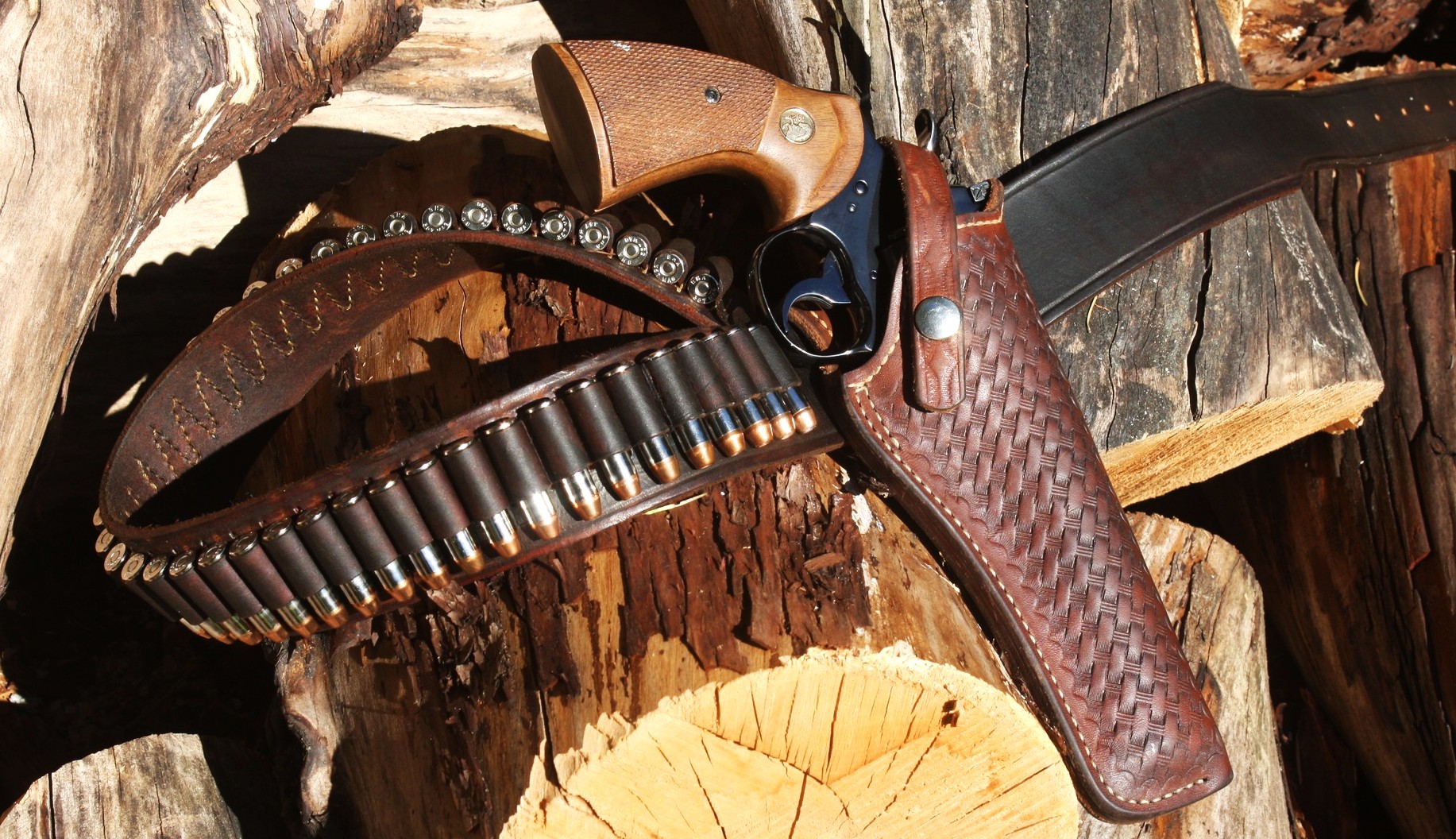
Whether one opts for a cartridge belt or a belt slide holding six or a dozen extra rounds, it is imperative to have spare ammunition. Decades ago, when my aunt bought a .22-caliber S&W revolver for my uncle as a Christmas gift, I followed that up a few weeks later by giving him a cartridge belt capable of holding 50 rounds, and delivered it fully loaded one afternoon.
On several occasions when I was hunting raccoons with a mentor, I’d carry a .22-caliber revolver and I always needed extra rounds.
I have over the years abided by one principle: It is better to have a gun and not need it, than to need a gun and not have it.

